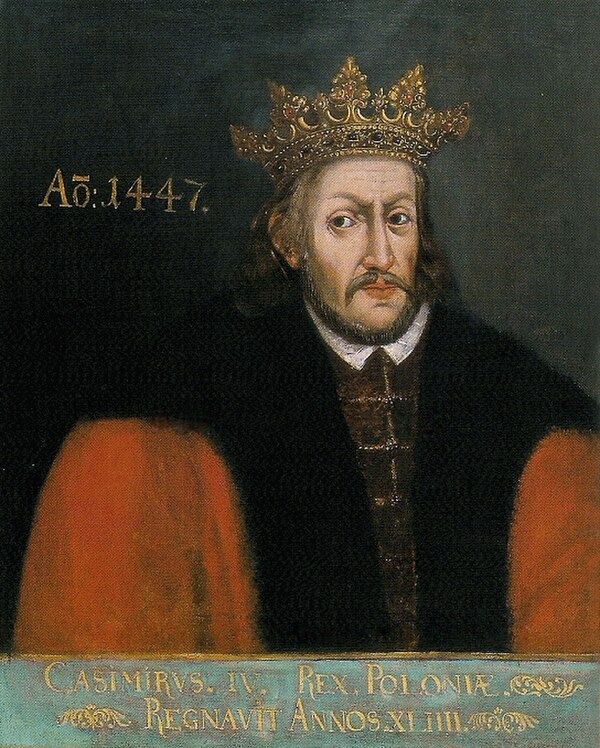
Władysław III and Casimir IV Jagiellon
PolandThe reign of the young Władysław III (1434–44), who succeeded his father Władysław II Jagiełło and ruled as king of Poland and Hungary, was cut short by his death at the Battle of Varna against the forces of the Ottoman Empire. This disaster led to an interregnum of three years that ended with the accession of Władysław's brother Casimir IV Jagiellon in 1447.
Critical developments of the Jagiellonian period were concentrated during Casimir IV's long reign, which lasted until 1492. In 1454, Royal Prussia was incorporated by Poland and the Thirteen Years' War of 1454–66 with the Teutonic state ensued. In 1466, the milestone Peace of Thorn was concluded. This treaty divided Prussia to create East Prussia, the future Duchy of Prussia, a separate entity that functioned as a fief of Poland under the administration of the Teutonic Knights. Poland also confronted the Ottoman Empire and the Crimean Tatars in the south, and in the east helped Lithuania fight the Grand Duchy of Moscow. The country was developing as a feudal state, with a predominantly agricultural economy and an increasingly dominant landed nobility. Kraków, the royal capital, was turning into a major academic and cultural center, and in 1473 the first printing press began operating there. With the growing importance of szlachta (middle and lower nobility), the king's council evolved to become by 1493 a bicameral General Sejm (parliament) that no longer represented exclusively top dignitaries of the realm.
The Nihil novi act, adopted in 1505 by the Sejm, transferred most of the legislative power from the monarch to the Sejm. This event marked the beginning of the period known as "Golden Liberty", when the state was ruled in principle by the "free and equal" Polish nobility. In the 16th century, the massive development of folwark agribusinesses operated by the nobility led to increasingly abusive conditions for the peasant serfs who worked them. The political monopoly of the nobles also stifled the development of cities, some of which were thriving during the late Jagiellonian era, and limited the rights of townspeople, effectively holding back the emergence of the middle class.
